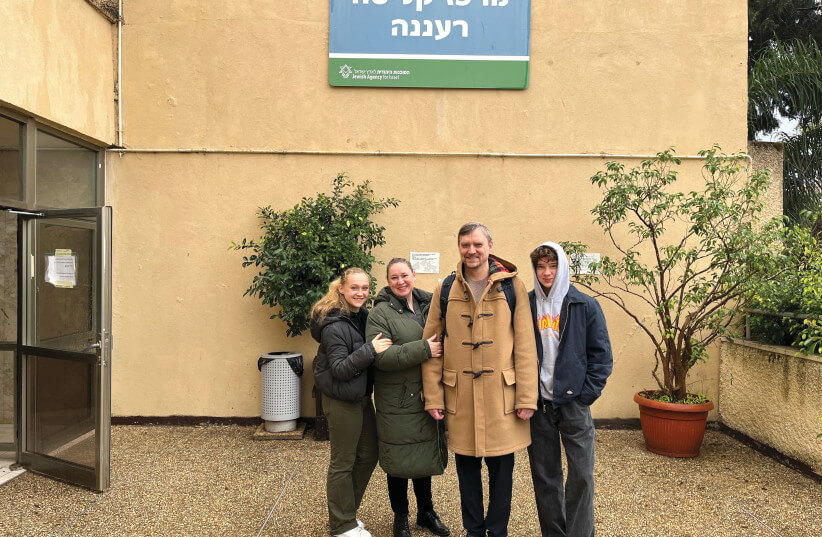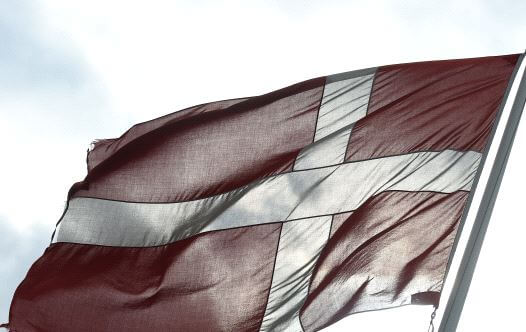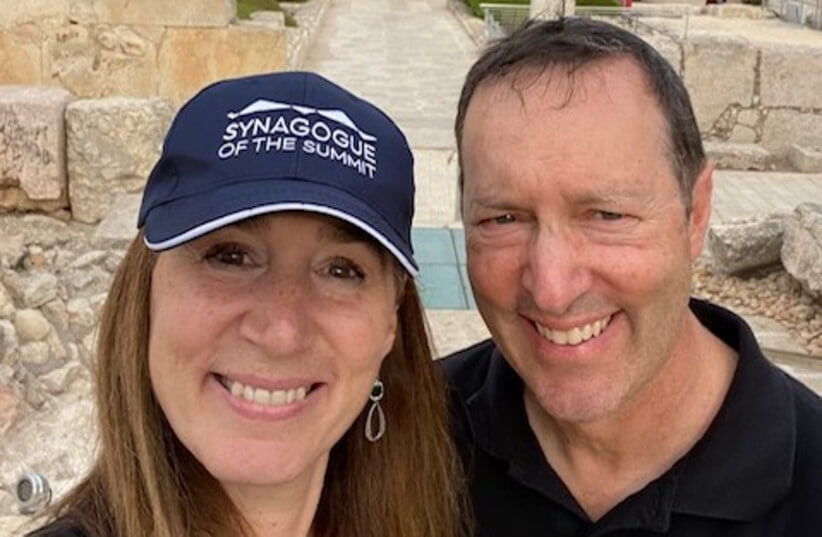Original Article is Posted on The Jerusalem Post
Former Yesh Atid MK Aliza Lavie sets out a range of possibilities for today’s bat mitzvah girl.
In the interactive book Iconic Jewish Women: Fifty-Nine Inspiring, Courageous, Revolutionary Role Models for Young Girls (A Perfect Bat Mitzvah Gift), recently translated from Hebrew, former Yesh Atid MK Aliza Lavie sets out a range of possibilities for today’s bat mitzvah girl.
A former senior lecturer at Bar-Ilan University on gender and women’s studies, Lavie explains that “girls have had no specific ritual” to mark the watershed. To that end, she offers a range of creative and meaningful bat mitzvah options.
In the book, Lavie describes the bat mitzvah celebrations of her three daughters, as well as her own experience. Her research had led her to what she believes were the first bat mitzvah ceremonies in Italy a century and a half ago: “Dressed in white and surrounded by their community, the girls would recite the 10 Commandments and read ‘The Song of Deborah’ together before the opening of the ark in the synagogue,” she says.
Iconic Jewish women throughout history
Each chapter of Iconic Jewish Women offers an opportunity to “meet Jewish women who added something significant to the Jewish people and the world, epitomizing the words of tikkun olam, repairing the world.”
The short bio of each woman is followed by suggested study topics and activities such as a hessed (lovingkindness) for family, community, or society; a location to visit that is connected to the woman in the chapter. The section titled “Get Out of Your Comfort Zone,” Lavie notes, is “a little different or challenging” and may include a writing activity; making a patchwork quilt; or creating a hackathon [a social coding event that brings computer programmers and other interested people together to improve upon or build a new software program].

Sarah Aaronsohn (credit: WIKIPEDIA)
Lavie’s chapters, spanning biblical and Talmudic times to the present, are presented alphabetically – from Sarah Aaronsohn (heroine of the Nili spy network) and Bella Abzug (social activist and member of the US House of Representatives) to Stefa (Stefania) Wilczynska (mother to Jewish orphans during the Holocaust) and Zelda (the poet).
Most chapters are refreshers on some of the most famous women in Jewish history, such as Anne Frank; Glikl of Hameln; Golda Meir; Dona Gracia Mendes Nasi; and Henrietta Szold. Other chapters introduce Jewish women the reader may not have encountered, such as Bracha Habas, the Land of Israel’s first female field reporter; Selma Mayer, aka Schwester Selma, founder of Israel’s first nursing school; and Elynor “Johnnie” Rudnick, trainer of Israel’s first Air Force pilots.
ACKNOWLEDGING THAT it was difficult to limit the candidates to 59, Lavie includes a list of an additional 35 “More Inspiring Jewish Women” at the end of the book, such as religious Israeli marathoner Beatie Bracha Deutsch; psychologist Carol Gilligan; first female rabbi ordained in the US Sally Priesand; and singer Barbra Streisand.
The chapter on US Supreme Court justice Ruth Bader Ginsberg (RBG) encourages girls to learn about the US Supreme Court, compare it to Israel’s Supreme Court, and suggests a visit to a local courthouse.
It notes RBG’s first leadership role as a summer camp counselor and encourages readers to find ways to contribute to their own summer camp or youth movements and/or consider holding the bat mitzvah in that context.
Chapter 8 concludes with quotes on gender equality by Supreme Court justices Miriam Ben-Porat, the first woman in the Supreme Court; and Esther Hayut, the recently retired former chief justice of the Supreme Court. Girls preparing for their bat mitzvah are asked whether RBG would agree or disagree with the quote and are encouraged to write their own legal statement on the topic.
The chapter on biblical matriarch Sarah introduces readers to Yad Sarah, the free lending organization which provides medical equipment to those in need and encourages them to visit or organize a fundraiser. A visit to the Cave of Machpelah (Sarah’s burial place) and Beit Hadassah (visitor’s center) in Hebron is also suggested. According to Lavie, Sarah is credited with “bringing laughter into the world” when she laughed at the news of her upcoming birth to Isaac at an old age. Girls may consider leading a laughter (or yoga laughter) workshop to teach participants relaxing and breathing techniques.
The chapter on Mossad agent Yehudit Nisayho, who was instrumental in the capture of Adolph Eichmann, encourages learning about the Mossad. Bat mitzvah girls can pay tribute to Nisayho’s observant Jewish lifestyle by creating a kosher recipe book in her honor; visit the Israel Intelligence Heritage and Commemoration Center in Glilot; or create an entire bat mitzvah celebration around the theme of codes.
With many suggested sites to visit in Israel, for those living abroad a family bat mitzvah trip could bring even deeper meaning to the occasion.
The history chapter, “The Wide World of Bat Mitzvah Ceremonies: a Journey through Time and around the Globe,” provides information about the first Italian bat mitzvah performed by Rabbi Isaac Pardo on a Sunday near Shavuot 150 years ago. It also includes the blessing recited by the bat mitzvah girls at that ceremony – as well as a prayer for the bat mitzvah girl. Additional chapters at the end of the book provide a more detailed history of the bat mitzvah ritual, as well as a useful time line and glossary.
LAVIE WROTE her 2002 doctoral dissertation on “Israel Radio and Gender”; has taught gender and mass communication at Bar-Ilan; and is author of several books on women and Judaism. When the former Yesh Atid MK served as chairwoman of the Committee on the Status of Women and Gender Equality, she opened each committee meeting with the description of an important woman in Jewish history: “I asked all the participants to tell us about a woman who impressed them, a role model in their life, an untold story.”
Lavie encourages the adults in the lives of bat mitzvah girls to “work with your bat mitzvah girl not only to tell one story and hold one event but to add to the rich Jewish tapestry of culture, values, study, and community.”
- ICONIC JEWISH WOMEN: Fifty-Nine Inspiring, Courageous, Revolutionary Role Models for Young Girls (A Perfect Bat Mitzvah Gift)
- By Aliza Lavie
- (English translation) Amazon
- 478 pages; $18.18






